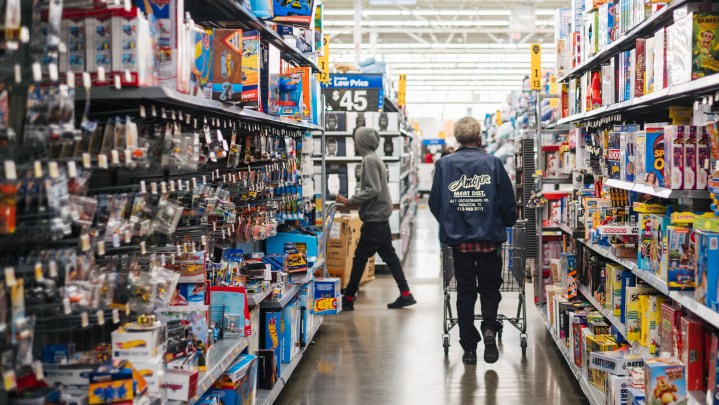
Consumer sentiment takes another hit in December

Consumer sentiment has just fallen —again — and as of mid-January, sits at its second-lowest level in a decade, according to the University of Michigan’s biweekly survey.
And at the same time, as we learned in last week’s jobs report that unemployment is 3.9%, almost unthinkably low. Not only is that close to pre-pandemic levels; it’s among the lowest jobless rates going back 50 years. And job openings are near record highs, with employers desperate to hire and wages rising strongly.
There’s one more number that may help make sense of this dichotomy between how people feel about the economy and how the economy’s actually performing for them: lucky number 7. Well, maybe not so lucky, as we’re talking about 7%, that 40-year-high rate of price inflation that consumers have experienced over the last year.
People do not like the sharp rise in prices we’ve seen recently, said Mallory Newall at public-opinion firm Ipsos. It’s not like the typical consumer goes out to the store with a copy of the Wall Street Journal and a calculator. “They may not be thinking about 7% inflation, but what they are thinking about is ‘Oh, yeah, my grocery bill’s gone up, gas prices are higher. I see that,'” Newall said.
And when inflation is this high — outpacing wage gains — low- and middle-income consumers really suffer, according to economist Robert Frick at Navy Federal Credit Union.
“If you make less than $100,000, inflation is very painful for you. On the other hand, people who make above $100,000 are becoming more optimistic about the economy. Inflation is taking a bigger bite out of lower-income Americans,” he said.
And that includes older consumers on a fixed income, said Kayla Bruun at polling firm Morning Consult.
“They tend to be either retired or closer to retirement, they have fewer working years ahead of them and [are in] not as good a position to weather a rising cost of living,” she said.
Whereas younger workers have decades of work and earnings still ahead of them. “They’re expecting their wages will keep up with inflation, and still potentially be in a fine financial situation,” Bruun said.
Many Americans do feel like their financial situation is fine, said Newall at Ipsos, especially those who have a job — or just got a better job with a raise.
“Their outlook when it comes to job security, employment is certainly more positive than we’ve seen in the past,” she said.
There’s a big disconnect between consumers’ personal optimism and national pessimism, Newall said. “They feel more positive about their own situation. But at the same time, their views of the bigger economy continue to be pretty grim.”
And the fact that the country is going through yet another COVID-19 surge certainly isn’t helping with that “grim” feeling.
There’s a lot happening in the world. Through it all, Marketplace is here for you.
You rely on Marketplace to break down the world’s events and tell you how it affects you in a fact-based, approachable way. We rely on your financial support to keep making that possible.
Your donation today powers the independent journalism that you rely on. For just $5/month, you can help sustain Marketplace so we can keep reporting on the things that matter to you.











